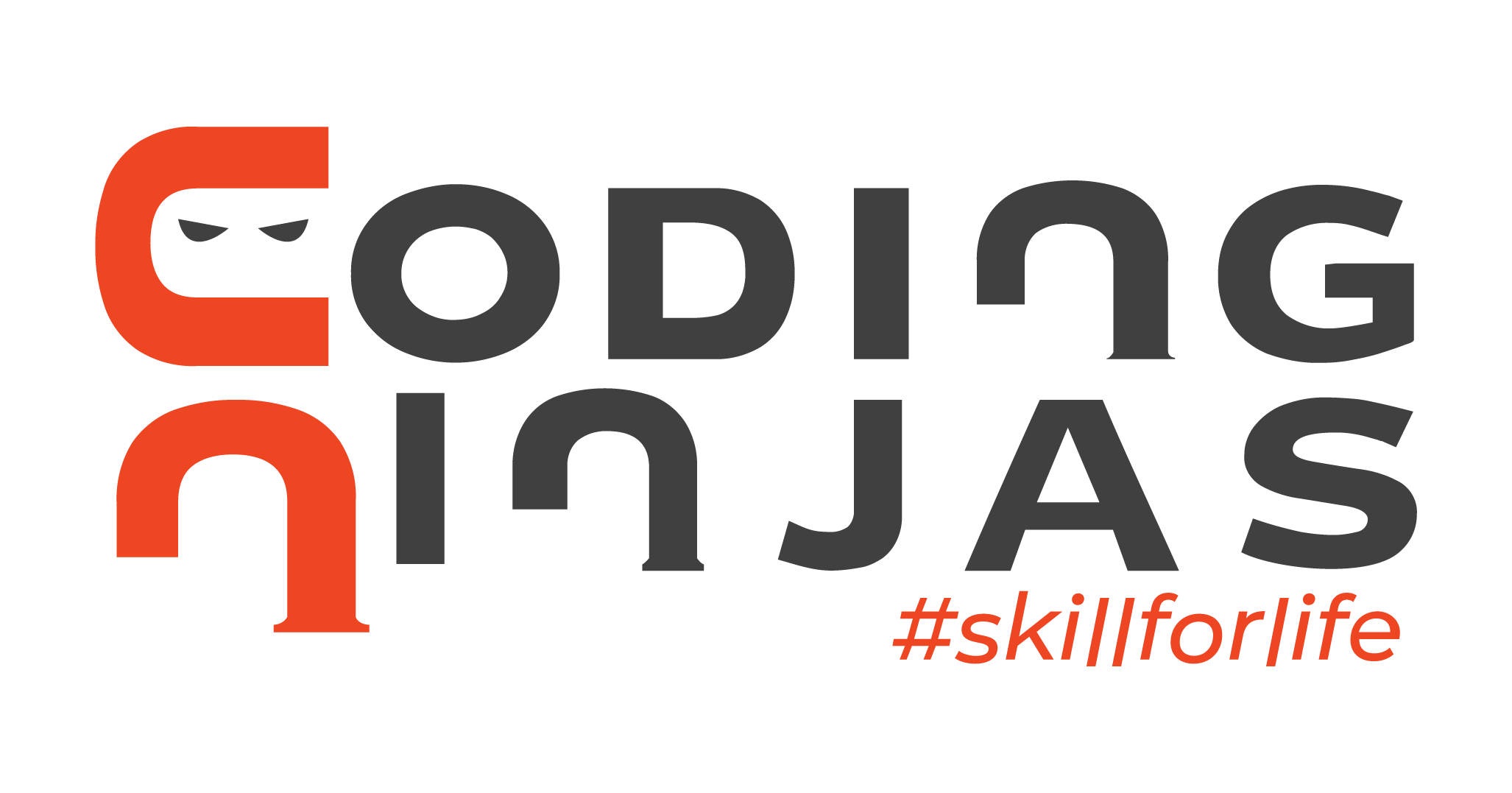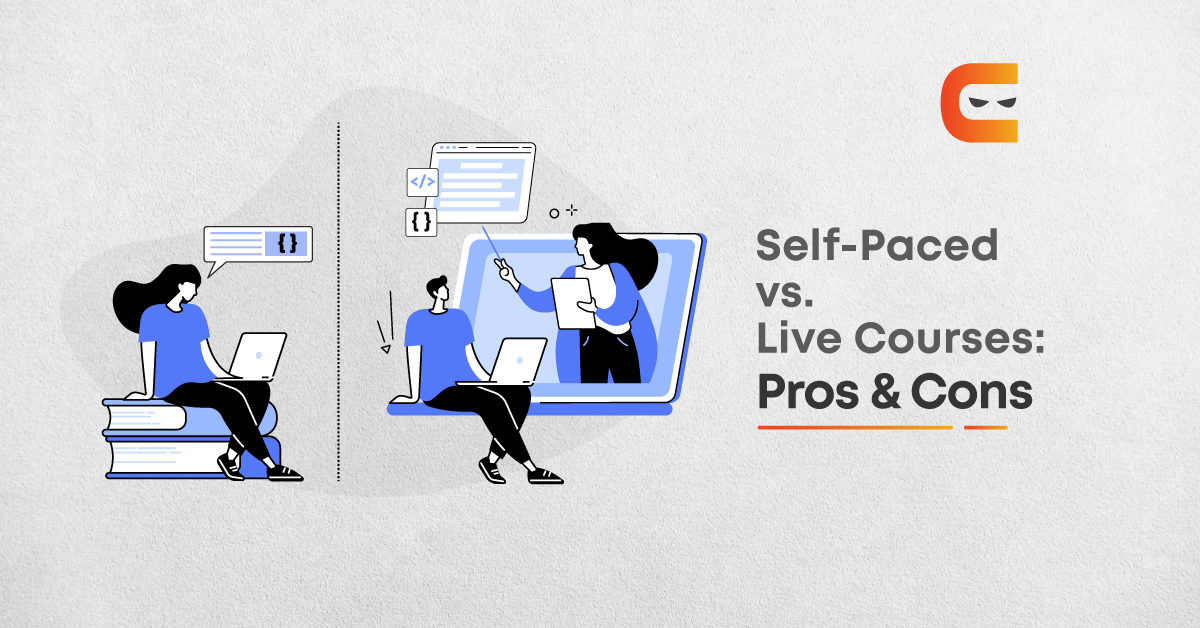Table of Contents
Introduction
Do you wish to enrol on the perfect course for your personal development or future opportunities, but do not know which one to opt for? Let us discuss two of the most popular kinds of programmes or courses that we get to see and let us help you identify the right fit for you. Not every course is suitable for everyone as every individual has his/her own requirements, so let us understand about Self-Paced vs Live Classes. For instance, working professionals cannot dedicate too much time to courses due to being busy with work.
Working individuals also find it hard to stick to a schedule or adjust to the timings of live classes. This is especially true for individuals who have rotational shifts or those who do not have any fixed office hours. However, when talking about self-paced v live classes in general, live classes are preferred for being more personalised and featuring a real teacher, instead of just pre-recorded modules. Let us check what these two kinds of online programmes are and what are their pros and cons.
What is a Self-paced Course?
Self-paced courses include any regular online programme that does not require any dedicated schedule and does not need students to check in frequently (daily/weekly). Students can choose to complete topics or modules in their own sweet time which is especially helpful when students are busy with their studies (board exams, college exams or entrances) or job hunt and cannot spend too much time on their additional courses. This is also true for busy working professionals who cannot dedicate a fixed amount of time every week to the courses they are enrolled in.
Even though some courses do not have a generous time limit, a lot of self-paced courses provide ample amount of time to finish the topics even if students or working professionals get busy for days or weeks on end. These self-paced courses follow a predetermined syllabus and structure that generally does not change unless there is a new technology or methodologies (which work more effectively) that have been introduced.
What are Live Online Classes?
Live classes are also online programmes but they are held by actual teachers in real-time. These courses simulate offline courses that are conducted by teachers and try to emulate an actual classroom. These online classrooms are also known as virtual classrooms and are as beneficial as regular classrooms for students. This is especially due to the concept of batches, the collaboration between students, daily assignments, class projects and the doubt-solving sessions.
The great thing about these live online classes and the reason why they stand out is due to not having the need for the teachers or students to be present in any particular location. Students and teachers can be involved with the class while being located anywhere in the world.
These classes do have a fixed syllabus but can adapt to changes in the syllabus or technology much more easily due to not having fixed modules or pre-recorded video content. There are also tailored take-home assignments that students are more serious about submitting and teachers keep motivating students to do better for these assignments.
Teachers provide students with the help they need to keep getting better. Live classes can also cater to questions or resolve doubts in the class itself. For example, if students are unable to understand a topic, they can simply ask the teacher to discuss the topic again without hampering the rest of the batch too much. Also, the fact that other students are also involved with the classes encourages others to do better or collaborate with their classmates. Live classes facilitate the kind of ‘tried and tested’ learning system that the world has been following for decades and even centuries. The best part is that online classes have made classrooms more accessible and simpler due to students not requiring to travel.
What are the Pros of Self-paced vs Live Classes?
Both the learning systems have massive benefits that help in shaping the future of students or the personal development of working professionals. Let us discuss the pros of self-paced v live classes.
Here are the pros of self-paced classes:
- Self-paced classes are flexible and generally provide an ample amount of time to complete modules or topics.
- These classes are also generally cheaper than their live counterparts due to not requiring dedicated teachers. However, there are many live online classes that do not exhaust the wallets of students or provide great payment options as well.
- Self-paced classes are very helpful for working professionals as they do not need to follow a schedule or adjust to the timings of live classes.
- The deadlines and module targets are more generous to make things easier for people who do not have a lot of time at their hands or those who cannot dedicate even a few hours every week. However, this ends up making some students lose interest in the programmes and eventually get demotivated to finish the courses.
Here are the pros of live classes:
- Live classes are more personalised and tailored to suit the batch or students. There are also enormous support systems and doubt resolution sessions that help students to solve questions that come up during the classes or any doubts that are on their minds.
- Real teachers control live classes. Thus by bringing in the human factor, these live classes are sensitive to the knowledge level of the batch and proceed in accordance with the current abilities of students.
- There are a lot more assignments, projects and homework involved with these kinds of classes. Students also get a lot of immediate feedback (in real-time) and suggestions for improvement.
- The syllabus can get upgraded or updated with very little hassle. Teachers can also choose to improvise during the classes and add to topics on their own for the benefit of students. Teachers can choose to focus on important topics more and cover other unimportant modules faster.
- There is no need for students to waste time travelling and they can safely take classes in the comfort of their own homes.
What are the Cons of Self-paced vs Live Classes?
Live classes are better-suited for students or freshers while working professionals find it easy to learn through regular online programmes or self-paced courses. This is especially true due to ‘live’ programmes having deadlines or targets for covering topics. Meanwhile, self-paced programmes allow working individuals a lot more room to finish topics in their own sweet time.
However, self-paced programmes are not as holistic or extensive as live programmes due to the lack of real teachers and sometimes, due to the lack of no human interference. Let us check the cons of self-paced v live classes.
Here are the cons of self-paced classes:
- These classes are not personalised and only feature some tailored aspects such as monthly (or stage-wise) feedback, suggestions and assignments. However, these personalised benefits cannot be seen in free online coding courses in India but only in premium courses such as the ones Coding Ninjas offers.
- There are no real teachers and even though some courses such as Coding Ninjas programmes do feature industry-expert sessions, mock tests and teaching assistants, most other coding courses online for free do not have any real humans helping the students out.
- There is barely any scope for ‘one on one’ sessions or interacting with the faculty responsible for the course material or with mentors.
- There are no teachers and other batchmates and this might be demotivating for some students due to the lack of inspiration. The courses also become monotonous for the students as well. This makes a lot of students drop out of the programme or not complete it. Students must ensure that they study and finish the topics in self-paced classes.
- There is also no one to oversee how the student is learning or how much the student covered. This also means that students do not get to find out if they are progressing as they should or if they are doing well. These courses also thus end up taking more time while not covering as much material or topics as their live counterparts.
- No class projects or collaborative assignments. There are pre-designed videos or modules that cannot be changed.
Here are the cons of live classes:
- Live classes require you to adjust to schedules and prioritise the timings of the classes, especially if you wish to not miss out on lectures. Missing out on lectures or classes can end up creating a study gap and you can fall behind the other students in the batch.
- Live classes are generally more expensive, however, courses such as Data Structures & Advanced Algorithms in C++ is one of the best online coding classes you can opt for while still enjoying many flexible payment options.
- Generally, these classes are not flexible and doubts must be resolved in accordance with the batch by being active and ensuring you ask the right questions when the batch is on a particular topic. This is especially true for coding courses in online classrooms.
- For online coding courses with certificates, there are deadlines and targets you must meet in order to not get penalised or for acquiring the certificates (with or without marks). Also, not being present in live coding classes or not performing well can lead to unsatisfactory marks for modules or topics as well.
Frequently Asked Questions
Self-paced classes are a great option and they are better than traditional online classes, however, when being compared to live online classes, both programmes have their own advantages and disadvantages.
No, there are multiple different kinds of online classes such as regular online classes, live online classes and self-paced classes. Notably, self-paced classes are more suitable for working professionals or busy individuals with upcoming examinations.
A self-paced class is a flexible online programme that does not feature a real teacher and students can take their own time in finishing topics or modules.
The lack of a teacher and a holistic learning environment (virtual classroom) are the main disadvantages of self-paced learning. Students also sometimes lose motivation to continue self-paced learning.
Self-study is not bad but when students are enrolled in coding courses for beginners, they need all the extra help and support they can get. Students need doubt-solving sessions and motivation as well, which cannot be experienced through self-study.
Self-study is difficult due to not getting enough help and support. It is quite difficult to study without mentors or teachers for young students.
Coding Ninjas offers state-of-the-art self-paced courses.
Yes, live classes are definitely better than studying alone for most individuals; at least when it comes to learning. However, self-study is more beneficial for professionals.
Yes, there are many self-paced coding programmes and coding bootcamps such as Coding Ninjas Career Camp that provide placement assistance.
Key Takeaway
There are a lot of differences between self-paced courses and live classes which make each stand out for certain sections of the population. Therefore, it is always great to take a hybrid or combined approach. This ensures that you can learn skills, subjects, programming languages or topics in the most effective way while you enjoy a flexible learning schedule.
Coding Ninjas Career Camp is a great hybrid learning system that features teaching assistants, real teachers, webinars, doubt-solving and industry-expert sessions, placements and so much more while still remaining flexible and requiring students to just dedicate about 8 hours every week. The bootcamp is, however, not self-paced, as it follows a 9-month study structure that covers topics in accordance with the pre-given syllabus. The rest of the time is spent on mock interviews and placements.
However, the C++ course (DSA) also features a dedicated placement cell with tailored job openings and many other benefits such as guidance sessions, mock interviews and even the option to shift batches.















Leave a Reply